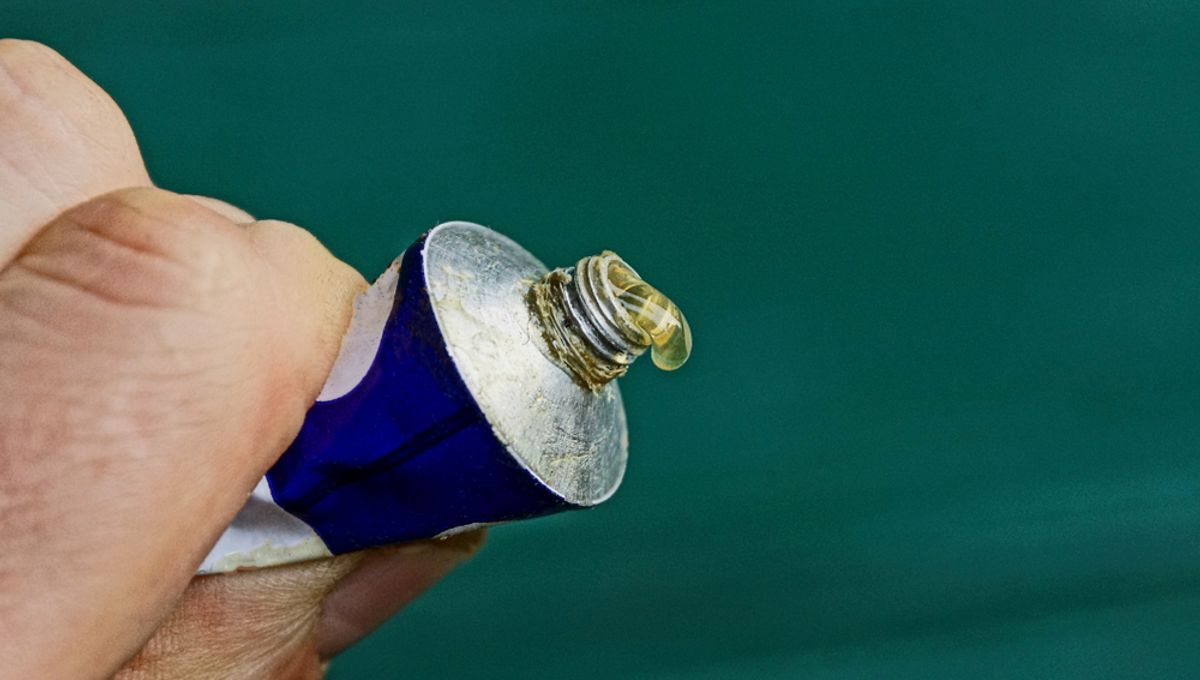
A new superglue alternative, derived from soy, could provide sustainable and biodegradable stickiness that rivals the less environmentally friendly products currently on the market.
Traditional superglues and epoxies are generally made from fossil fuels, and as such take thousands of years to biodegrade. Their production also generates a large amount of greenhouse gas emissions – producing 1 tonne of epoxy creates an estimated 5.8 tonnes of carbon dioxide.
Soy-based glue, on the other hand, could cut carbon emissions, potentially pushing them into negative territory, as the plants absorb the gas – although the calculations for this, the study authors admit, are not perfect.
“Our current adhesives create all sorts of environmental problems,” lead author Jonathan Wilker said in a statement. “Almost all glues are petroleum-based and do not degrade. The bonded materials in our products stay stuck together. Consequently, we cannot recycle many of the materials that we put into our recycling bins. Discarded products will sit in landfills for centuries and, sometimes, contribute to ocean microplastics.”
As well as harming the environment, these substances can present a threat to our health. Formaldehyde-based adhesives, for example, are commonly used to make building materials like plywood, which risks exposing humans to the potentially dangerous chemical.
Finding more sustainable, and also nontoxic, substitutes is therefore imperative, which is where nature can offer up a helping hand.
Wilker isn’t the first to turn to the natural world in search of alternative adhesives. In the past, all manner of critters have inspired such endeavors, including slugs, cephalopods, and shellfish.
“By studying how nature makes adhesives, we are learning how to design new technologies for our future society,” Wilker explained.
In this latest attempt, the team utilized soybean oil, adding malic acid – which is what gives apples their tart flavor – and tannic acid – found in the twigs of some trees – to create a sustainable, inexpensive, and effective adhesive.
“If you combine these components under the right conditions, adhesives can be made that are as strong as epoxies,” Wilker added.
To test their tackiness, the study authors bonded wood, plastics, and metals, before attempting to prize the objects apart. The soy-based adhesive performed well – in many cases proving just as strong, if not more so, than traditional superglues and epoxies. For instance, it was found to be around 30 percent stronger than superglue when bonding polished aluminum.
These adhesive properties were even maintained when the glue was submerged in water. After 24 hours underwater, the soy glue retained an impressive 75 to 100 percent of its initial bond strength.
While more work is needed to refine the process, the team is hopeful its glue could one day find its way into a variety of fields, adding some sustainable stickiness to everything from medical innovations and industrial materials to packaging.
The study is published in the journal Nature.
Source Link: Soy-Based Superglue Offers Sustainable Sticking Strength